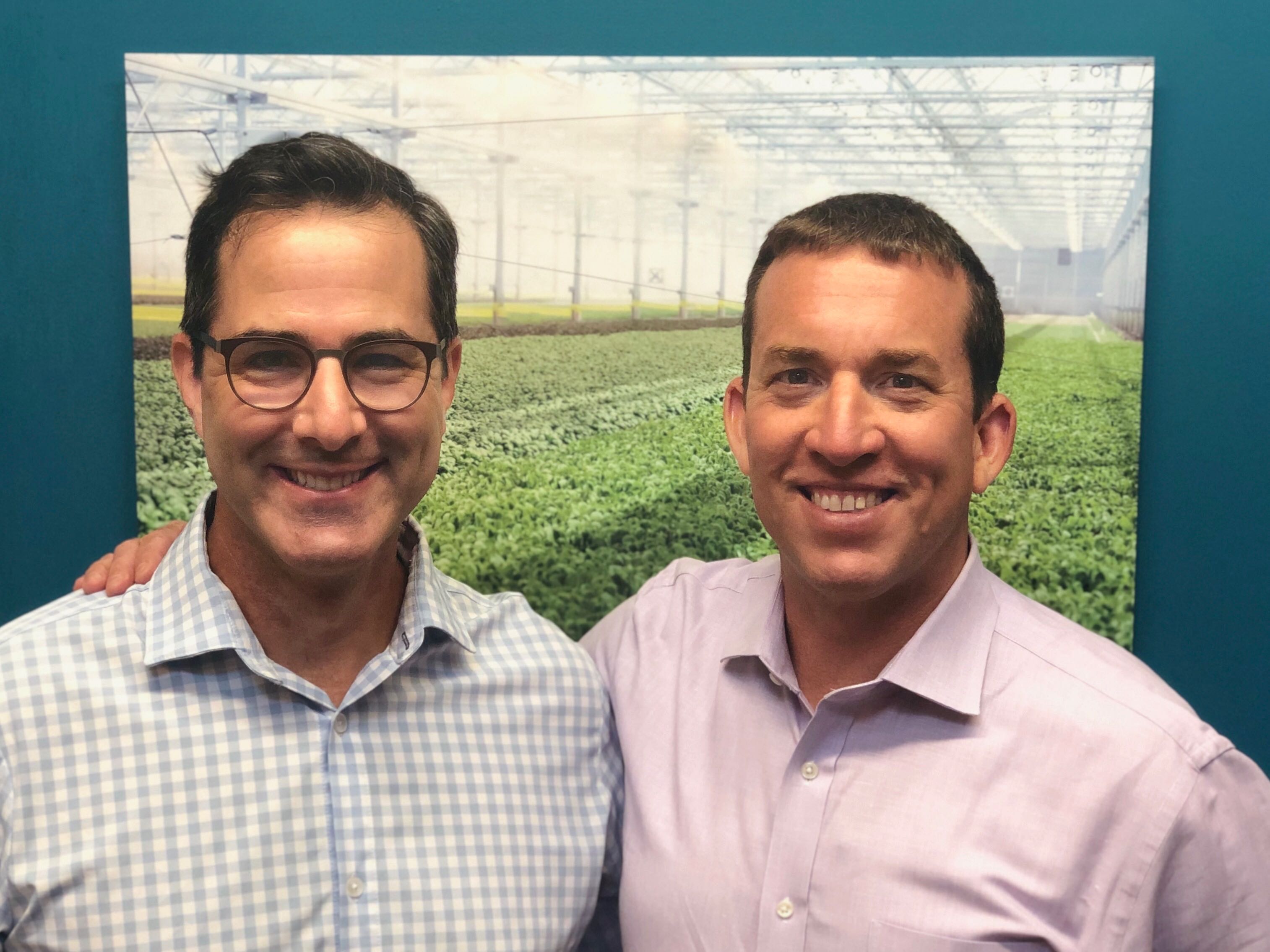The locally-grown packaged salad purveyor recently announced plans to expand in Massachusetts, New York, and North Carolina, while construction is currently underway on a Texas grow house.
Indoor agriculture startup BrightFarms has appointed Steve Platt as CEO. Founder and former CEO Paul Lightfoot will continue as company president. Both Platt and Lightfoot will serve as members of the Board of Directors.
“As founder, I’ve taken BrightFarms from an idea to the leader in next-generation indoor produce,” said Lightfoot in a statement announcing the change. “Steve is a world-class CPG executive with an authentic passion for our mission and our products, and possesses the talent, experience, and know-how to take the company to the next level.”
Platt comes from the CPG sector, most recently serving as CEO of yogurt company Icelandic Provisions. He grew the company to more than 6,500 stores making it the fastest-growing brand in dairy yogurt by his account. He also served in executive roles at Danone, Oikos, Danimals and YoCrunch. Whether his deep yogurt industry knowledge will be transferable to the nascent and arguably unsettled wild west of indoor ag will likely be of interest to industry players.
BrightFarms operates hydroponic greenhouse farms, offering locally-grown packaged salads to consumers nationwide. It currently operates growhouses in Illinois, Pennsylvania, Virginia, and Ohio. After raising a $55 million Series D last year, the startup is now expanding to Texas.
Unlike other indoor farming startups that are focused on technological innovation, the New York City-based startup has seemed more keen on optimizing its business model. While it isn’t as well-funded as some of the major vertical farming groups like AeroFarms or Plenty, it does appear to be the closest venture-backed indoor farming outfit to becoming a national brand. Expanding to Texas will help it compete with America’s salad bowl regions located in Salinas, CA and Yuma, AZ.
“I am privileged to be the next CEO of BrightFarms. This is an exciting time for the company and I look forward to working with Paul and the entire team to scale the company and deliver our salad greens to more retailers and consumers across the country,” Platt said in the press release. “BrightFarms is how Americans will consume produce – fresh, local and pesticide free.”
Earlier this year, the company announced plans to open three new greenhouse farms in Massachusetts, New York and North Carolina. Construction will begin Spring 2020. The new facilities will span 280,000 square feet on 20 acres of land and maintain 55 employees each. The company estimates that the new locations will each produce over 2 million pounds of salad greens and herbs each year.
Despite its popularity, indoor farming is a tough business proposition. A recent study of urban agriculture in NYC concluded that indoor ag may not be the panacea that some describe it as. After analyzing 10 urban farms operating at commercial scale, it concluded that the operations are not necessarily resource efficient, often requiring massive amounts of electricity to control humidity, temperature, and other key growing conditions.
Urban farms have so far been limited to leafy greens, herbs, and a few other crops, the report noted, making them a poor source for meeting an entire community’s produce needs. The operations often need a decent amount of land to produce enough vegetables to become a commercial operation, raising further skepticism about the industry’s future.
BrightFarms model based on regional grow houses may be the secret sauce to overcoming some of these challenges. Placing larger-sized facilities at the outskirts of major city centers and relying on partnerships with supermarkets and other retailers to move pre-packaged salads in lieu of selling at the farmers market or direct-to-consumer are two examples.
Bowery is another indoor farming startup that has selected local retailers and packaged salads as its primary route-to-market. FreightFarms, on the other hand, offers ready-made shipping containers called the Leafy Green Machine, boasting 320-square-feet of space.





